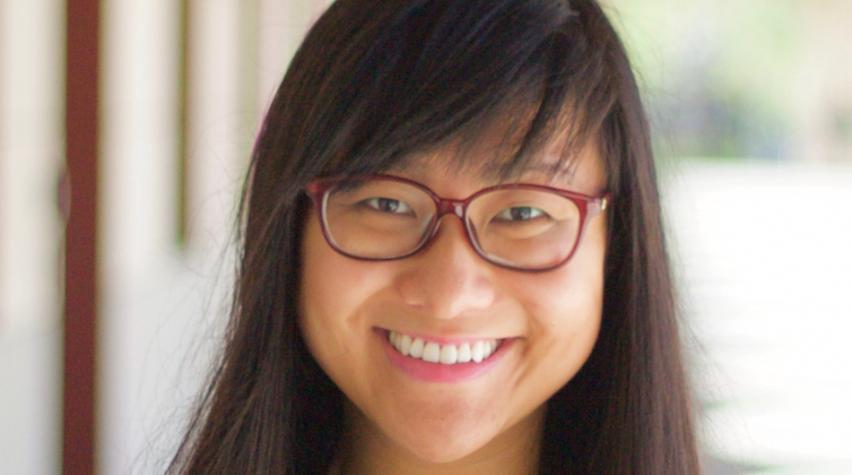
Innovative and exciting research is being performed each and every day by graduate students across the globe in all walks of chemical engineering. This post is a part of the Graduate Research Spotlight Series, which seeks to highlight some of the research being performed by AIChE's graduate student members. If you know of an AIChE member who is currently performing outstanding graduate research and has recently published a first-author paper, please let us know at ypc@aiche.org.
Where are you from?
Toronto, Canada
What university are you completing your graduate degree at?
Stanford University
What field/program are you enrolled in?
Physical Chemistry/Chemical engineering
What type of degree are you getting?
PhD
Where did you receive your undergraduate degree?
Queen's University at Kingston
What was your undergraduate major?
Chemistry
How many years have you been a member of AIChE? *
2
In layman’s terms please describe your specific field and what impact it may have on society.
Due to fossil fuels' detrimental effects on the environment, the search for renewable energy resources is a priority for our society. Solar and wind are viable options in theory but are held back by their intermittency. A good energy storage system is required to overcome this problem. Moreover, to replace internal combustion engine vehicles, we need batteries with much higher (approximately an order of magnitude) energy densities than what is currently available. Thus, it is my goal to study how a battery operates on an atomic level so that we can, in short, design better batteries for these purposes.

What is the title of your recently published research article?
Theoretical Limits to the Anode Potential in Aqueous Mg–Air Batteries
Describe the highlights of your recently published paper.
The aqueous Mg–air battery is an attractive candidate for some electric vehicle applications due to its high theoretical specific energy, environmentally and physiologically benign properties, and implied low cost from using earth-abundant materials. However, the experimentally observed potentials (1.6–1.2 V) are far from the thermodynamically predicted value of 3.09 V, based on the free energy of formation for the reaction Mg (s) + 1/2 O2 (g) + H2O (l) ⇌ Mg(OH)2 (s). It is generally believed that this large difference is principally due to the presence of Mg corrosion giving rise to a net corrosion potential, and that it would be possible to nearly obtain the full potential of 3.09 V if corrosion were completely suppressed. In this contribution, we present a density functional theory study of the hydroxide-assisted Mg anodic dissolution mechanism in the aqueous Mg–air battery.
We show that the Mg surface is expected to be highly OH*-covered in the anodic dissolution process, and that the calculated intrinsic limiting potentials are in fact in reasonable agreement with experimentally observed potentials. These limiting potentials are dictated by sequential electrochemical adsorption of hydroxide to the Mg surface, and therefore, the bulk free energy of Mg(OH)2 (s) formation cannot be used to predict the intrinsic anode potential in the aqueous Mg–air battery. These intrinsic limits imply that completely suppressing Mg corrosion will not significantly increase the potential available for the Mg–air battery.
To learn more, see Leanne's recently published article.
What are your plans after completing your graduate degree?
I plan to pursue a career in academia.
What motivated you to pursue your graduate work?
My love of mathematics and desire to work on a tangible problem drew me into the field of theoretical and computational chemistry. I now use the same tools to work on problems in energy storage and conversion.
If you weren’t a ChE what would you most want to be?
I would likely be a discrete mathematician. Abstract algebra was the most interesting math course I took in college. Growing up, I was fascinated by numbers themselves and loved to solve mathematical puzzles. I also went through a Rubik's cube phase in high school and am now revisiting that in my spare time. Less realistically, I'd want to be an orchestra conductor. I studied music formally for ten years before I started college; my main instrument was piano and I also dabbled in percussion and flute.
What was best meal you ever ate?
It's hard to pick just one! I will list the most memorable/exotic ones
-eisbein (boiled hamhock) in Berlin
-alligator skewers from the Grizzly Grill in Kingston, Ontario
-fries served in a paper cone with mayo (it's actually awesome) in Amsterdam
-nigiri from Sushi Sam's Edomata in San Mateo, especially the baby lobster
You can reach Leanne through her LinkedIn profile.


